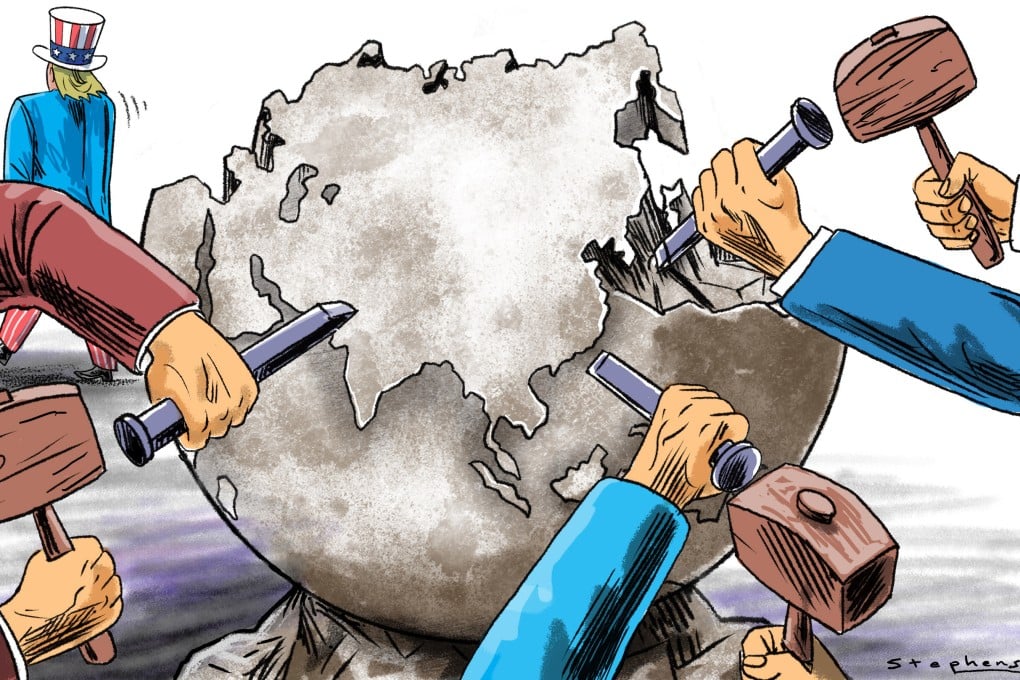
The global economy has been influenced by a network of treaties, institutions, and trade partnerships that were established in the wake of World War II for more than 75 years. A framework of globalization was established by the United States, Europe, and their allies, which was founded on capitalism, open markets, and multilateral cooperation. However, would these long-standing economic alliances endure in the event of a Third World War, or would the world experience a complete reset of its financial and geopolitical landscape?
The response may be contingent upon the global economy’s ability to adjust in the presence of strategic realignment, uncertainty, and devastation, in addition to the identity of the combatants.
Current Alliances’ Fragile Foundations
The current global economic framework is founded on a few fundamental components:
* **The U.S. dollar** as the primary reserve currency * **Multilateral institutions**, including the World Bank, IMF, and WTO * **Global supply chains** that are designed for efficiency rather than resilience * **Alliances**, including NATO, the EU, and G7, that unite economic and military interests
These systems were not intended to withstand the demands of a global conflict that encompassed contemporary technologies, cyber threats, and intricate trade relationships. The infrastructure of global cooperation could be dismantled by a conflict of that magnitude.
The Breakup Scenario: Alliances in Peril
Several extant alliances would be put to the test and potentially disrupted by a potential global conflict:
1. **Conflicting National Interests**
Nations may prioritize their own survival, energy security, or domestic economies over global commitments, even within strong alliances. Trust would rapidly diminish.
2. **Economic Warfare**
Free commerce would be replaced by sanctions, embargoes, and resource stockpiling. Countries may reverse decades of integration by enforcing strict capital controls and dissociating from adversaries.
3. **Global Institutional Collapse**
In the event that significant players abandon or undermine international organizations, these institutions may lose their authority or be supplanted by parallel systems that are governed by opposing blocs.
4. **Financial Weaponization**
SWIFT access, central bank reserves, and sovereign debt holdings would serve as economic battlegrounds, exacerbating the divisions between the East and West, North and South.
The emergence of new blocs
**New spheres of economic influence** are likely to be introduced by a Third World War, which would result in the formation of regional blocs with competing currencies, trade norms, and priorities.
The Potential Alignments:
* **Western Bloc**: Comprised of the United States, the European Union, the United Kingdom, Canada, Japan, and Australia. Emphasizes the importance of technology-based industries, dollar dominance, and democratic values.
* **Eastern Bloc**: Potentially commanded by China, Russia, Iran, and other nations. Emphasizes commodity-driven trade, alternative finance systems (e.g., CIPS), and sovereignty.
* **Neutral Bloc**: Consisting of countries such as India, Brazil, South Africa, and ASEAN nations, this bloc is attempting to negotiate between powers without complete alignment.
New alliances would be **less ideological and more transactional**, based on survival, strategic access to resources, and technological autonomy.
Realignment of Decentralized and Digital Systems
The **digitization of economic alliances** could also be accelerated by war:
* **Blockchain infrastructure** has the potential to replace vulnerable centralized systems. * **Central Bank Digital Currencies (CBDCs)** have the potential to establish new forms of inter-bloc trade. * **Digital ID and payment rails** may be regulated by distinct tech ecosystems (e.g., U.S.-led vs. China-led networks).
We may witness a digital landscape that is fragmented, with competing protocols and technology standards, rather than a unified global economy.
Opportunity Amidst Ruin: The Rebuilding Phase
**New global orders** are frequently established during post-war periods, if history is any indication. Bretton Woods, the United Nations, and the contemporary trade regime were all established as a result of World War II. WWIII, should it transpire, could establish the foundation for:
* A new reserve currency or multi-currency system * Regional development institutions with increased independence * Stronger climate and sustainability-linked trade partnerships * Emerging economies have redefined their roles as important power brokers.
During this phase, **former adversaries may transition to economic partners**, motivated by the necessity and opportunity to construct a more resilient and stable world.
Final Thoughts: Reinvention, Realignment, or Collapse?
**Global economic alliances** would almost undoubtedly **be reset** in the event of a Third World War, although this would not necessarily manifest in total devastation. Rather, it could result in realignments that are based on mutual interest, technology, and geography, rather than ideology.
The economic alliances of the future may be less concerned with long-term treaties and more with flexible, adaptive partnerships that are designed for a multipolar world. Although the expense of such a transition would be substantial, it could also present an opportunity to establish a more equitable and inclusive global economy—provided that nations are able to transition from conflict to collaboration once more.
Leave a Reply